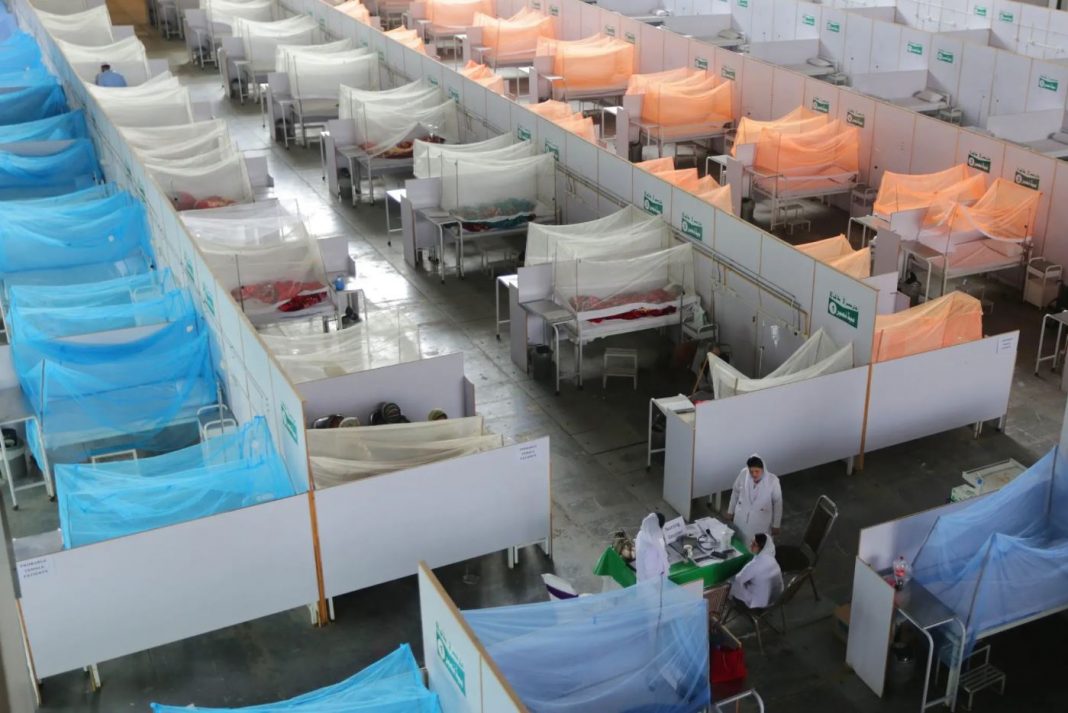The use of public health efforts to halt the spread of Covid-19 had an unanticipated outcome in 2020 throughout Latin America and Southeast Asia: hundreds of thousands of dengue virus infections were avoided, according to a report published in The Lancet this month. The findings of the study provide suggestions for developing new tactics to battle a hazardous tropical illness that has been infecting an increasing number of individuals each year.
As a result of travel restrictions, the study found that dengue infections fell sharply in many regions where the virus is spread by mosquitoes starting in April 2020. The study estimates that there were 720,000 fewer dengue cases globally in the first year of the pandemic as a result of the travel restrictions.
Doctor Oliver Brady of the London School of Hygiene and Tropical Medicine in the United Kingdom, who led the study, said, “We discovered really unexpected net benefits from Covid restrictions and was the study’s senior author.
A total of more than 5 million individuals were infected with dengue fever, which is also known as “breakbone fever” because of the terrible joint and muscle pain it causes, around the globe in 2019.
In the early stages of the pandemic, Dr. Brady and other infectious disease researchers feared the worst as resources were diverted to Covid-19 and other disease control measures — such as mosquito spraying — were put on hold. Dr. Brady and other infectious disease researchers were right to be concerned. A pleasant surprise, the sharp reduction in dengue infections has piqued the interest of researchers, who are keen to learn more about what has caused it. Other probable explanations, such as environmental changes and a decrease in the reporting of dengue fever by public health organisations, were ruled out. According to him, the only feasible explanation was a substantial disturbance in people’s mobility as a result of the incident.
The shutdown of schools, in particular, seems to have had a significant influence in reducing dengue infections. Aedes aegypti mosquitoes, which are the primary dengue vector, are active throughout the day. According to the premise that transmission occurs in people’s homes, the majority of dengue management initiatives concentrate on them, spraying to kill mosquitoes and monitoring for standing water that may produce them.
The researchers are not advocating for the continuation of stay-at-home orders, but the unique circumstances provided surprising information. Dr. Brady said that their data indicate that biting occurs at schools or in places of employment, and that mosquito control efforts should be targeted in these locations. Dengue fever may have decreased as a result of the stay-at-home orders because when individuals did become sick, they were not going out where fresh mosquitoes might bite them and spread the virus to other people, as was the case before.
According to the researchers, the results from the dengue study may be applicable to other closely related mosquito-borne viruses, such as Zika and chikungunya. While infection rates may rise back to pre-Covid levels or worse if vector control programmes were disrupted, Dr. Brady warned that immunity levels may have fallen as a result of fewer people being exposed. Dengue data for 2021, which should be available soon, and for a post-pandemic period, he said, could bring bad news: infection rates may rise back to pre-Covid levels or worse if vector control programmes were disrupted.

